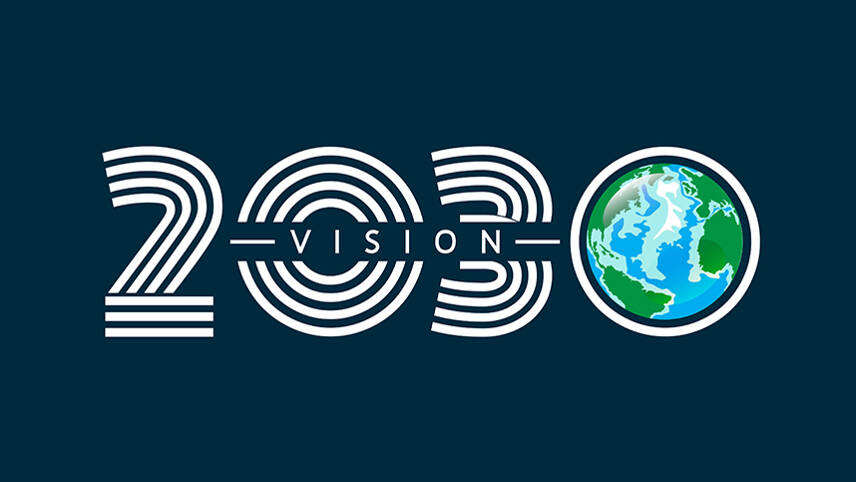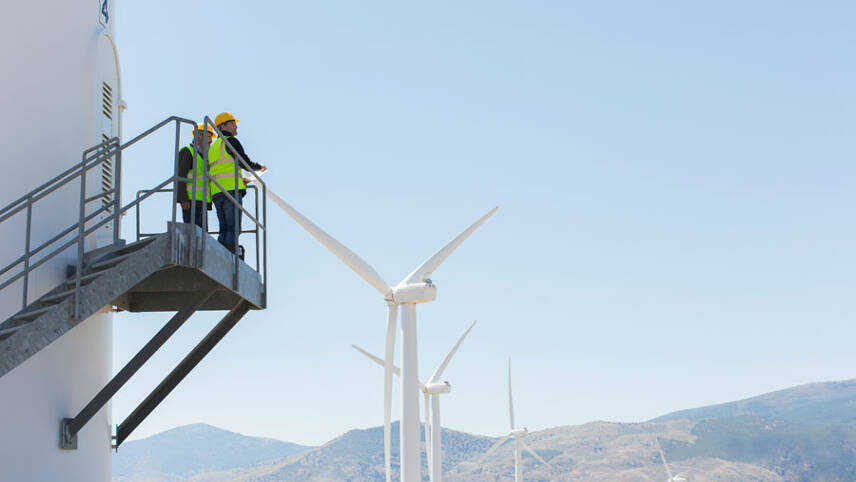WOBO and its members and fellow professionals appreciate the news items provided by “edie”

Activists or accountants?: Are sustainability professionals stuck in reporting mode?
Integrated reporting, rampant disclosure requests, a dizzying increase in voluntary and mandatory frameworks. It is fair to say that many sustainability professionals feel that reporting is a burden right now, that they’re looking back instead of forward. But can businesses walk the thin line between data and delivery?
Attend our webinar on Decarbonising Buildings: Making a net-zero built environment a reality and hear from industry leaders across the built environment value chain who are retrofitting, renovating and building from the ground up.
We’ll be joined by:
• James Ferdinando, Group Head of Sustainability, RED Construction Group
• Hassan Sabir, Finance & ESG Director, European Public Real Estate Association (EPRA)
• Marylis Ramos, Director of ESG and Sustainability, Savills
• Ben Pettitt,Sector Lead for Real Estate, IES
Register now to secure your spot and hear from experts on examples of best practice and key takeaways for other businesses to decarbonise their buildings
Date: Tuesday 9 April-Time: 2pm (GMT)-Duration: 1 hour

The new Business Leadership Month Summary report, produced in partnership with Verco and Krystal, rounds up all of the key news, analysis and announcements from the UK’s green economy during edie’s busiest month of the year – March.
This free-to-download report includes exclusive editorial content from across the month, which was centred around the edie Awards (6 March) and the flagship edie 24 event (20-21 March). It features array of leadership-themed articles, surveys, reports, webinars and podcasts, all designed to inform and inspire those working in sustainable business for the year ahead.
Also detailed in the report are the biggest headlines from the month, including the UK Budget announcement and the Science-Based Targets Initative’s stocktake of corporate climate targets.
Crucially, this report cuts through the noise, providing succinct summaries of the trends and initiatives that are shaping corporate leadership, and what steps need to be taken to transform climate actions plans into tangible action.
It includes an expert viewpoint from Verco, on the topic of corporate net-zero transition plans, and another from Krystal, on leveraging digital solutions to rapidly cut emissions in the private sector.
Click to access your copy of our Business Leadership Month report. – DOWNLOAD THE REPORT

UN: Increased recycling efforts failing to keep pace with boom in e-waste
The world’s generation of waste electronics and electricals, known as e-waste, is rising five times faster than documented recycling capacity.
That is according to the latest edition of the UN’s Global E-Waste monitor, which tracks waste and recycling levels across the world.
A record 62 million tonnes of e-waste was produced in 2022, the monitor confirms – an 82% increase since records began in 2010. The UN attributes the increase to higher rates of consumption and shorter product lifecycles.
The materials embedded in the e-waste produced that year exceed $91bn, the UN estimates. But most of this value goes to waste due to low recycling rates.
Some efforts have been made to scale repair options and recycling infrastructure. 22.3% of the e-waste generated in 2022 was documented as officially recycled, up from 17.4% in 2019.

An assessment of the world’s largest fossil fuel and cement firms has found that most increased production after the Paris Agreement on climate was agreed in 2015, potentially jeapordising global efforts to deliver its agreed limits to global warming.
Conducted by InfluenceMap, the assessment exposes the emissions footprints of 117 coal, oil, gas and cement producers listed in the ‘Carbon Majors’ database.
Originally published in 2013 and then updated in 2017, using data reaching back to the mid-1800s, the database identified the world’s largest historic emitters and has been used as a key tool to attribute responsibility for climate change to national governments and large, investor-owned fossil fuel firms.
InfluenceMap has stated today (4 April) that these companies were collectively responsible for 88% of global CO2 emissions between 2016 and 2022 – the first seven years of the existence of the Paris Agreement. Most of these emissions (80%) were attributable to a smaller base of 57 entities.
The majority of these firms increased their fossil fuel or cement production in this period. 65% of the state-owned companies and 55% of the investor-owned companies showed higher production in 2016–2022 than in 2009–2015.

Destination 2030: edie launches new sector-by-sector report series on sustainable transformation
Destination 2030: edie launches new sector-by-sector report series on sustainable transformation
edie has today (3 April) launched the first in a new report series that explores that key innovative solutions that sectors need to embrace if they are to contribute to a net-zero, closed-loop and Just Transition, focusing on the major developments required by 2030. Up first, a focus on the built environment.
Over the past few years, edie’s annual series of sector-specific insight reports explored the unique (and common) challenges and priorities of the UK’s biggest industries when it comes to sustainability and climate action.
But as the window to act closes, incremental change is no longer adequate in responding to escalating climate breakdown, an ongoing cost-of-living crisis and the urgent need to shift to closed-loop systems that protect the planet.
It is clear that the business of 2030 will need to look very different from today and each sector will undergo unique transformations. edie’s new Destination 2030 series, offers a timely reminder of the challenges that key sectors currently face.
The new series has kicked off with an in-depth exploration of the drivers and solutions required to meet critical targets in the built environment sector. From net-zero transitions to closed-loop solutions and how organisations can consider societal needs as part of the Just Transition, this new report examines the key changes that will shape the sector up to 2030 and beyond.

Clean energy transition risks ‘U-turns and detours’ in all regions
Clean energy transition risks ‘U-turns and detours’ in all regions
Conflict, policy instability and other geopolitical factors mean that no region is guaranteed to deliver its clean energy transition goals – and that the risk of these transitions being disorderly with unintended negative consequences “looms “
This is the warning from the World Energy Council based on the findings of its latest World Energy Issues Monitor, a survey taken by almost 1,800 decision-makers in the global energy industry.
Leaders broadly understand the technical aspects of bringing their local energy systems to net-zero by mid-century, along an emissions trajectory that is science-based. Yet they cite many practical barriers to delivering such a transition.
In all regions, leaders have a high degree of certainty that electricity transmission grids and energy storage capacity will need to be rapidly built out. 69% of those polled see transmission grids as a factor that is highly important to delivering an orderly clean energy transition and 66% said this was the case for broader infrastructure planning.
